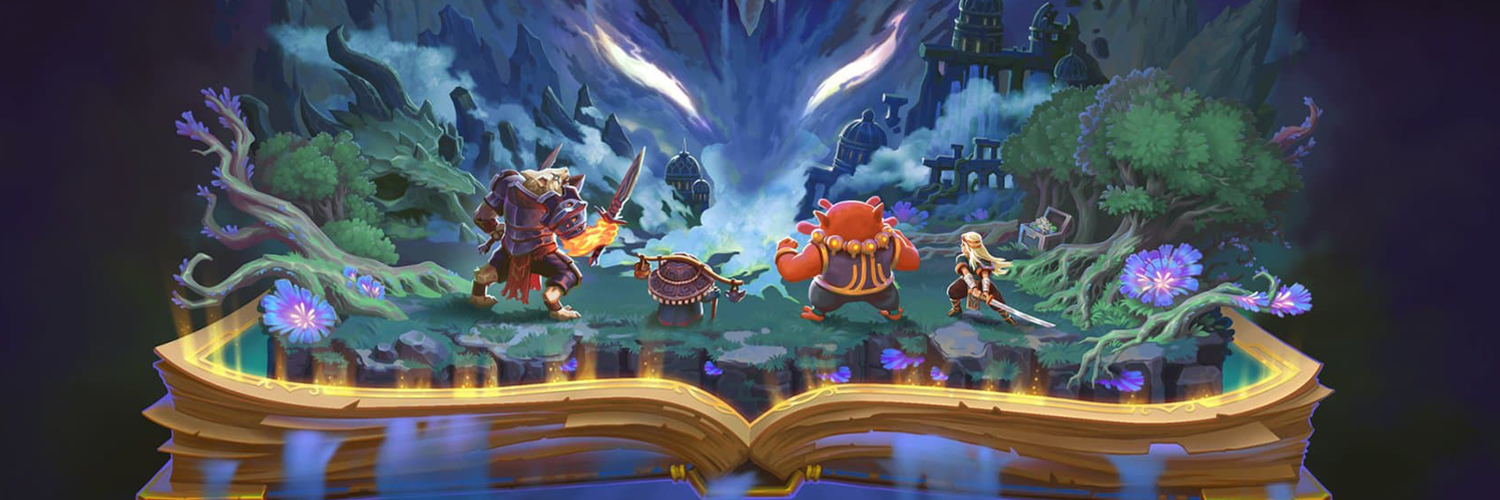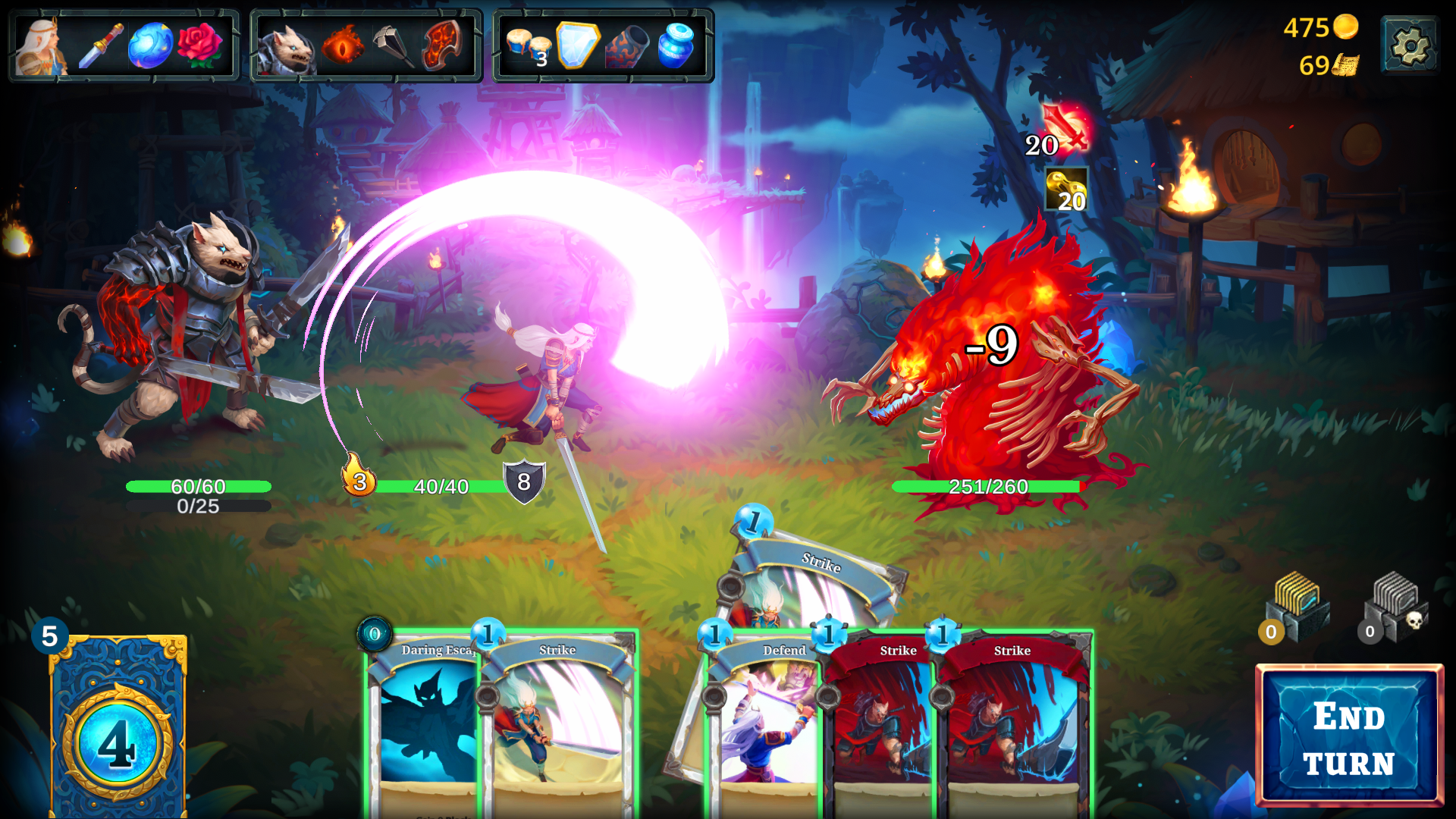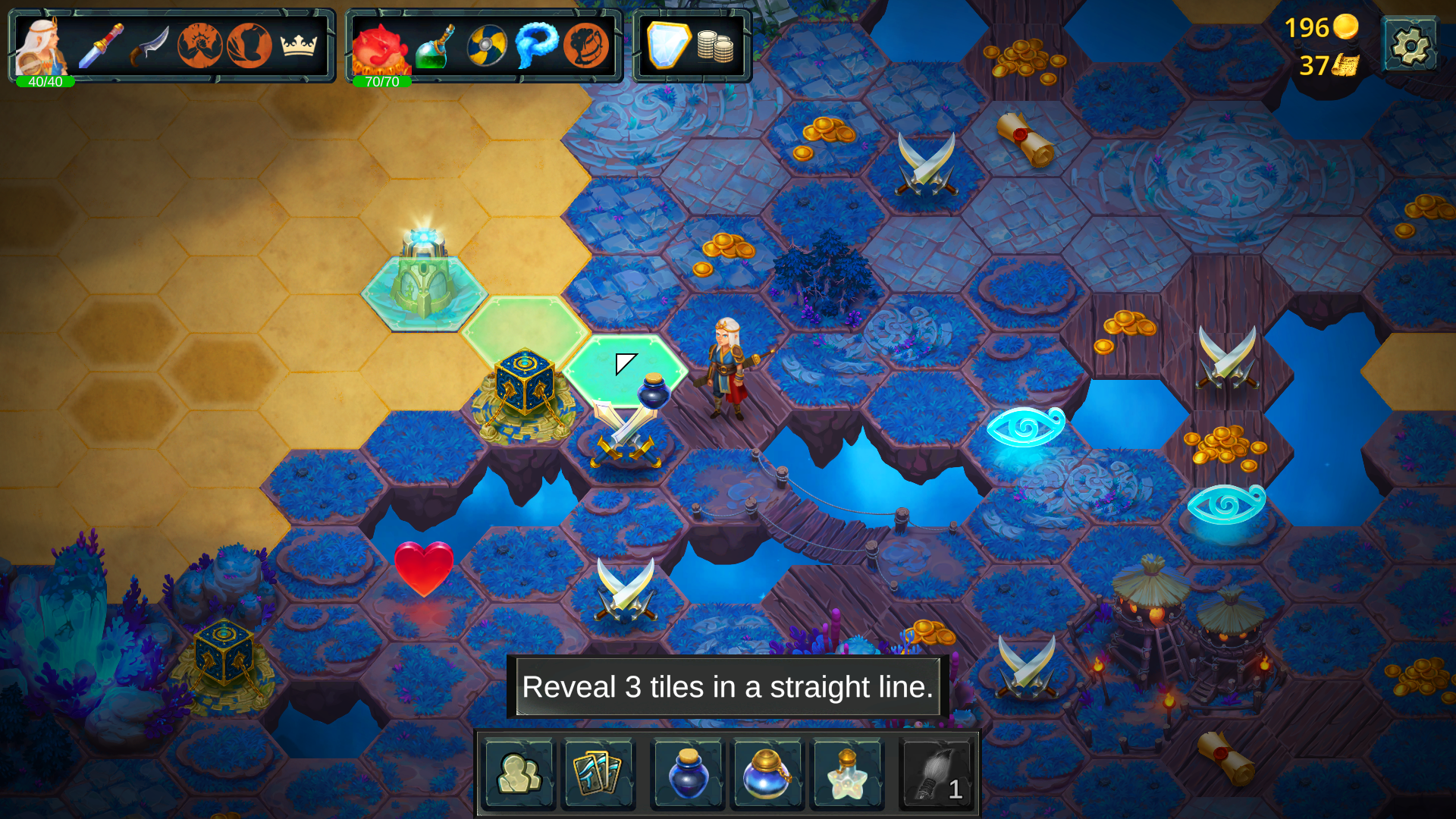
Preview – Roguebook [Demo] PC
DEMO AVAILABLE TO PLAY NOW as part of the Steam Game Festival!
Who better to craft a roguelike deck-builder than Abrakam; the team that brought us Faeria, and the great Richard Garfield; the father of the modern Collectible Card Game, most well known for creating a little game called Magic: The Gathering and other, even better(!), games? At first glance it’s easy to see inspiration has been taken from the fantastic design of Slay the Spire, in the way that enemy intentions are displayed to allow the player to plan their moves appropriately, and even from Monster Train and its clan system. However, whilst Roguebook may look like a simple mash-up of those concepts on the surface, it ends up feeling fresh and gets away with doing its own thing. The basic mechanics around deck-building, card improvements, and stacking of permanent upgrade items are present but there’s a few big twists with how the heroes work and what goes on in between fights to really stand out and at least warrant trying the demo if you’re a fan of the genre.
Cardplay during combat is exactly what one would expect – play attacks and blocks by paying their cost in mana/energy/whatever, try to combo effects, and prioritise the right targets. But, by having the player select two heroes at the start of a run, each with vastly different card archetypes and abilities/weaknesses, there’s a real spice that keeps things interesting. I mentioned it may look like blending of Monster Train and Slay the Spire and that’s really the best way to get the idea across. Although it plays more like StS in the sense that battles take place on a single plane and without the use of other main units, the dual-element system and fighter arrangement of MT come into play with how deck-building is handled as well as the significance of how the champions are physically positioned on the field.

See, by playing certain cards like blocks or ones with keywords such as ‘charge’ and ‘retreat’ the heroes swap their footing back and forth, with one of them being the leader – the brave warrior at the front who is usually the only one to face enemy damage and debuffs. Not only does this let you control who tanks a beating, if you handle movement well enough, but many effects and abilities are tied to location and alternating between allies, making it imperative to take full advantage of this distinct mobility if you want to get anywhere. What makes this possible is that the player has no control over who uses any particular card, every card is instead executed only by its respective owner. This means at some point you may find yourself holding two ‘Gain 5 block’ cards, or something similar, but the difference between using one over the other could easily mean victory or defeat.
This constant need to plan the manipulation of your team, combined with the limitations around the cards you draw and who they belong to makes for some deeply interesting gameplay and seriously satisfying strategy. For example, I really enjoyed Sharra the Dragonslayer’s (one of only two available characters in the demo) ability to deal more damage when she’s in the leader position. Though, due to her small health-pool, I always had to make sure I could flip her to the back by the end of each turn so that Sorocco (the other playable character from the demo) could use his shield skills and protect. This little tweak really blows the design space wide open. Not only is it incredibly fun to pull off these perfectly ordered combos but it feels great to be able to figure out how to squeak through using only your wits and the limited hand you have available.

Outside of all that action, exploration is also…explored in Roguebook. There’s no simple path-choosing or forced routes as may be familiar. The player actually has free-reign around a small map, themed around a page of a story-book, to discover upgrades, chances at new cards, and special events. By using a mostly empty hex grid and rewarding the player with limited-use bottles and brush strokes of magical ink that fill in more of the map in different ways, it’s left up to the player to choose where and what they want to start uncovering. Whether that be to head towards some of the permanent upgrades off in the corners, or reach out to special towers that can uncover even more of the map or reward gems that can be socketed into cards in order to improve them. It’s a neat mechanic and I’m sure I’ll discover how to more efficiently reveal the map as I play but it did feel terribly limiting at times, especially when I used special items only to find that the now-available tiles were impassable due to bits of terrain or the likes.
Either way I’m really glad to have given Roguebook a chance and I have no doubt most others will feel the same. I didn’t back it during its Kickstarter campaign but I certainly would have done so had a demo like this been available to try back then. It does a wonderful job showing off what makes the title unique and there’s just enough available to hook players on what else is to come, especially the rest of the heroes and the different combinations available. I will certainly be playing a great deal more of the demo before the end of the festival and I’ve already added the final release (targeted for the end of June) to my Steam wishlist. I can see this being a game I spend a lot of time with this year and it might just pull you in too.